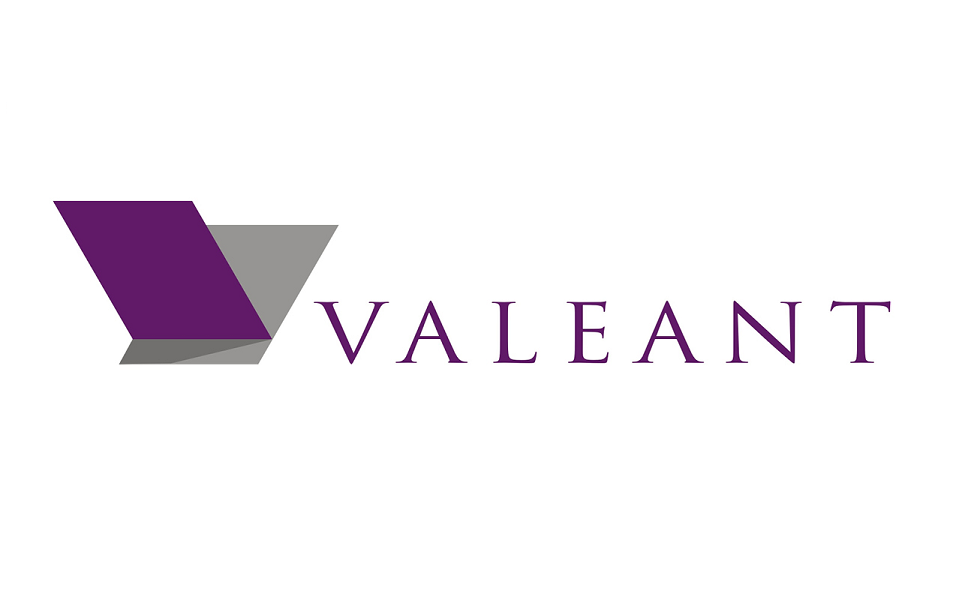Source: The Wall Street Journal
Valeant Pharmaceuticals International Inc. cut its annual outlook again Tuesday as the drug company, struggling to remake its business after a series of missteps, signaled its turnaround may take longer than expected.
Shares of the company tumbled 25% to $14.42, the stock’s lowest point in six years.
In the third quarter, the Canada-based company posted a $1.22 billion loss and wrote down the value of the Salix stomach-drugs business it is reportedly trying to sell. It also said health regulators delayed a decision on approving an experimental psoriasis drug and issued a warning letter for the company’s Rochester, N.Y., site.
Valeant had once been one of Wall Street’s darlings, as the company grew through acquisitions and price increases. But the stock has lost more than 85% of its value this year amid a slate of concerns, including accounting problems, a brush with a potential debt default and investigations by Congress and federal regulators over drug prices.
In response to the crises, Valeant has hired a new chief executive, Joseph Papa, and has been trying to remake itself as a more traditional pharmaceutical company.
On a conference call, newly appointed Chief Financial Officer Paul Herendeen also indicated 2017 “will be a down year,” saying revenue would likely decline, dragged by the loss of exclusivity in its heart drug Nitropress and several other neurology assets as well as pressure in the generics business. Analysts had expected revenue to increase, according to Thomson Reuters.
“Valeant is a company in transition,” he said. “With a turnaround, improvement can take longer than expected.”
Mr. Papa noted on the call that “we face some challenges, but we are taking specific actions that will put us on the right track.”
Valeant had affirmed its guidance in August, following a string of cuts. The firm now expects adjusted earnings of $5.30 to $5.50 a share on $9.55 billion to $9.65 billion in sales for the year, down sharply from its previous guidance for earnings of $6.60 to $7 a share and revenue between $9.9 billion and $10.1 billion.
Mr. Herendeen said the lower guidance didn’t breach any of Valeant’s debt covenants. Valeant has previously said it has about $30 billion in debt, including $12 billion owed to banks.
Valeant’s loss for the quarter stems almost entirely from a $1.05 billion write-down it booked to reflect deterioration in the value of its businesses in the U.S., mainly Salix. Valeant is in advanced talks to sell Salix to Japan’s Takeda Pharmaceutical Co. for $10 billion, The Wall Street Journal reported last week, as it seeks to ease pressure from its hefty debt load. Valeant has said it is “in discussions with third parties for various divestitures.”
In his call with analysts, Mr. Papa pointed to progress Valeant has made toward a turnaround, including hiring new executives like Mr. Herendeen. Mr. Papa said the company repaid $450 million in debt since the second quarter and cut expenses by $20 million, while making research investments needed to increase sales.
“We are seeing improvement,” Mr. Papa said. Valeant’s skin- and stomach-drugs businesses “are showing signs of growth.”
The company’s top-selling product, the irritable-bowel drug Xifaxan, had $273 million in sales, higher than some analysts expected. Skin-drug sales were $223 million, higher than in the second quarter but lower than analysts expected, which Valeant attributed to discounting.
Valeant has made all of its 2016 amortization payments and expects to make the last such payment for 2017 by the end of this year, Mr. Herendeen said.
For the September quarter, Valeant posted a loss of $1.22 billion, or $3.49 a share, compared with a profit of $49.5 million, or 14 cents a share, a year earlier. On an adjusted basis that strips out some costs and uses a new tax-reporting method, earnings fell to $1.55 a share from $2.41.
Revenue slid 11% to $2.48 billion, mostly owing to a decline in product sales but also dented by foreign currency exchange and other factors.
The Food and Drug Administration delayed a deadline for making an approval decision on psoriasis drug brodalumab to February 2017, from this month. Mr. Papa said the FDA’s warning letter about the Rochester, N.Y., site related to medical devices, not Bausch & Lomb contact lenses and other products.

